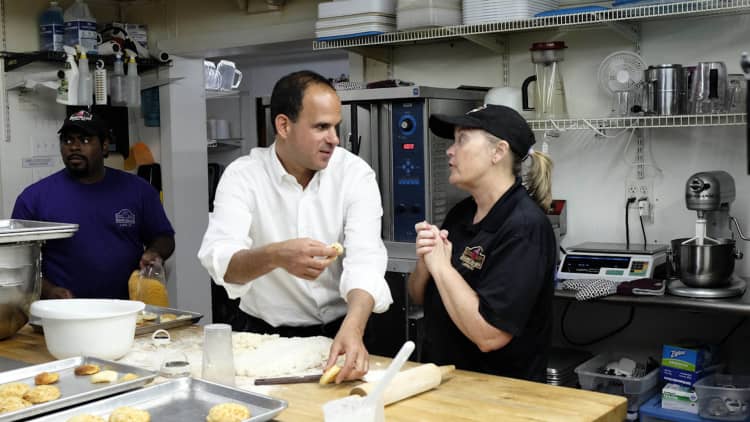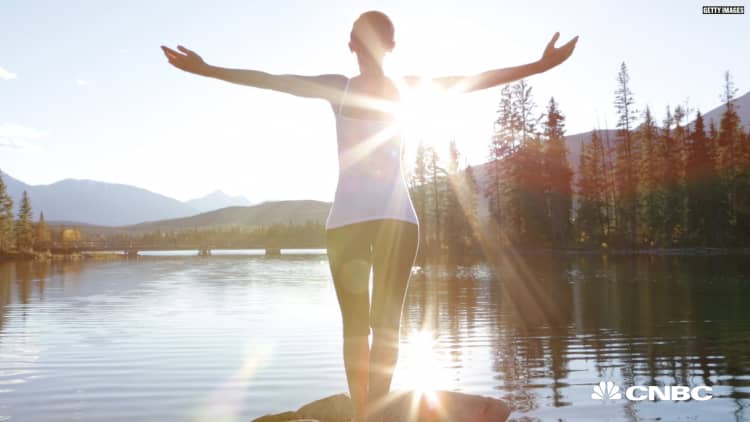Everyone wants to do their best in important situations like speeches and job interviews. But the high stakes can also cause nervousness or anxiety, which block peak performance, according to Steven Kotler, co-author of "Stealing fire: How Silicon Valley, the Navy SEALs and maverick scientists are revolutionizing the way we live and work."
The good news is, there's a hack for that, say Kotler and his co-author Jamie Wheal on "The James Altucher Show" podcast.
Biochemically speaking, anxiety and excitement are the same thing, says Kotler. Anxiety is caused by too much of the neurotransmitter norepinephrine, which in smaller amounts is actually a focus chemical, he says.
"The only thing that's different is the frame you build around it. How you interpret it."
That means, with few simple moves, you can "shift from an anxiety state into a highly focused state," Wheal says.
How do you do that?
Breathe deeply
First, take three deep breaths, says Wheal.
When you're nervous, your heart rate increases and your breathing becomes shallow, which means you have "really crumby air exchange, and basically, the bottom third of [your] lungs is just carbon dioxide," he explains. Your brain gets a signal that something is not quite right. That in turn sets off an anxiety response.
Deep breathing can help you walk that back.
Re-frame your feelings
Tell yourself you're excited, not nervous.
"Say, 'I am excited for this speech.' 'I am excited to step up on this stage,'" says Wheal. This trick, from cognitive behavioral therapy, which is a kind of psychotherapy, will "flip the switch" and get you out of the "neurotic loop" you're in, he says.
A new story can take you from fear and anxiety to being "alert and ready."
Wheal with Richard Branson on Necker Island
Use a physical trigger
Pay attention to what movements or gestures you make when you're excited, like clapping your hands together or wiggling your limbs. Then make those same moves.
It's a trick peak performers use. "Michael Phelps famously would stand up on the [diving] blocks and he does those giant wing slaps on his back with his arms. Tony Robbins does all of his power posing before he jumps on stage," says Wheal.
"These are ways just to prime and signal ourselves to make the most of [the energy], not to try and get rid of it."
Don't miss: 3 ways money can buy you happiness, according to science
Like this story? Like CNBC Make It on Facebook




